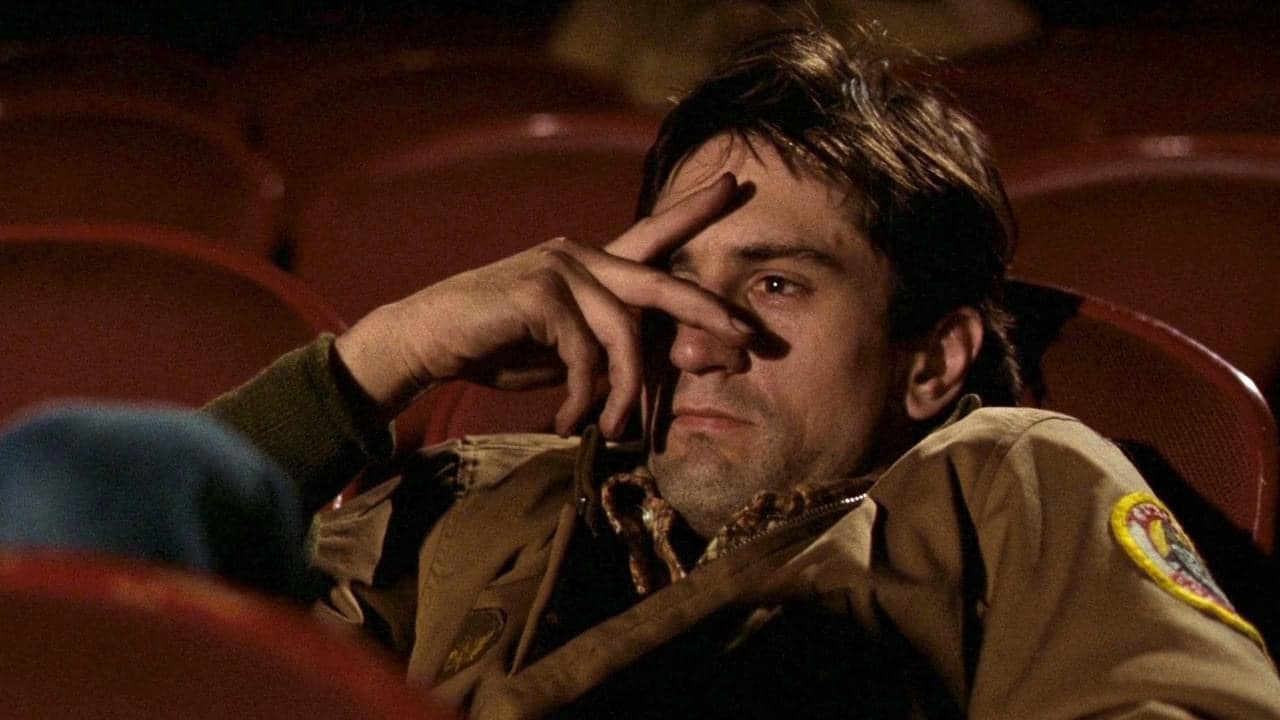Taxi Driver (1976)

Taxi Driver (1976): Content and Meaning
Introduction
Martin Scorsese’s Taxi Driver (1976) is a seminal work in American cinema, revered for its exploration of urban alienation and the psychological impact of societal decay. The film, written by Paul Schrader and starring Robert De Niro, Jodie Foster, and Cybill Shepherd, offers a grim yet insightful portrayal of a lonely cab driver’s descent into madness amidst the backdrop of 1970s New York City.
Plot Summary
Taxi Driver centers around Travis Bickle (Robert De Niro), a Vietnam War veteran who becomes a taxi driver in a decaying New York City. The film follows Travis as he navigates the city’s gritty streets, struggling with insomnia and feelings of detachment from society. His alienation grows as he encounters the city’s dark side, from seedy nightclubs to violent crime. Travis’s attempts to connect with others, such as his interactions with Betsy (Cybill Shepherd) and his growing obsession with saving young Iris (Jodie Foster), highlight his disillusionment and desire for redemption.
Travis’s sense of purpose becomes increasingly distorted, leading him to plan a violent act in a misguided attempt to cleanse the city of its corruption. The film climaxes with a violent confrontation, showcasing Travis’s ultimate breakdown and the consequences of his alienation.

Themes and Significance
- Urban Alienation: The film explores the theme of alienation through Travis’s interactions with the city. New York City is depicted as a chaotic, morally ambiguous environment, reflecting Travis’s internal turmoil. His isolation is symbolized by his solitary night shifts as a taxi driver, his inability to form meaningful relationships, and his eventual descent into violence.
- Mental Illness: Taxi Driver offers a stark portrayal of mental illness, capturing Travis’s struggle with his psychological state. His behavior—ranging from his obsessive diary entries to his violent fantasies—reflects a deeper commentary on the impact of war and societal neglect on mental health.
- Societal Decay and Redemption: The film critiques the moral decay of society and the consequences of its failures. Travis’s quest for redemption is framed within a corrupt and decaying urban landscape, suggesting that his actions are a response to the perceived moral collapse around him. His violent actions are portrayed as a desperate, misguided attempt to restore order.
- The Antihero: Travis Bickle is a quintessential antihero—flawed, unstable, and morally ambiguous. His character challenges traditional notions of heroism and morality, reflecting the complexities of human nature and the impact of societal influences on individual behavior.

Cultural Impact
Taxi Driver remains a powerful cultural artifact, influencing a wide range of media and discussions about urban life, mental health, and the nature of heroism. Its iconic imagery, including Travis’s famous line “You talkin’ to me?” and its portrayal of a fragmented society, continue to resonate with audiences and critics alike.
Conclusion
Martin Scorsese’s Taxi Driver is more than just a film; it’s a profound commentary on the human condition and the effects of societal decay. Through the lens of Travis Bickle’s troubled existence, the film delves into themes of alienation, mental illness, and the search for redemption in a morally ambiguous world. Its enduring impact and relevance underscore its status as a classic of American cinema.











